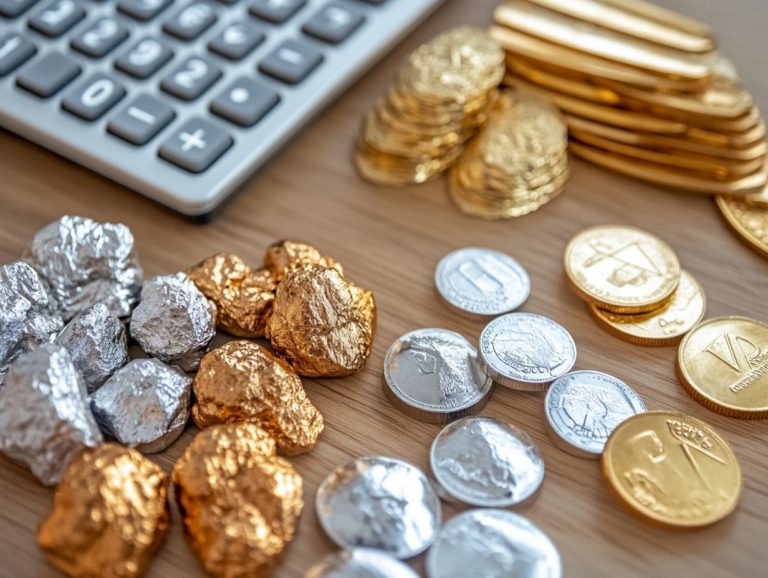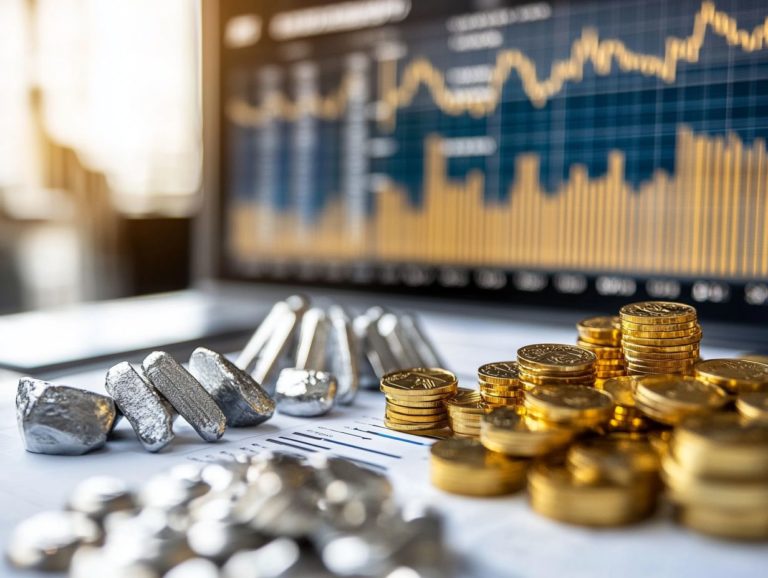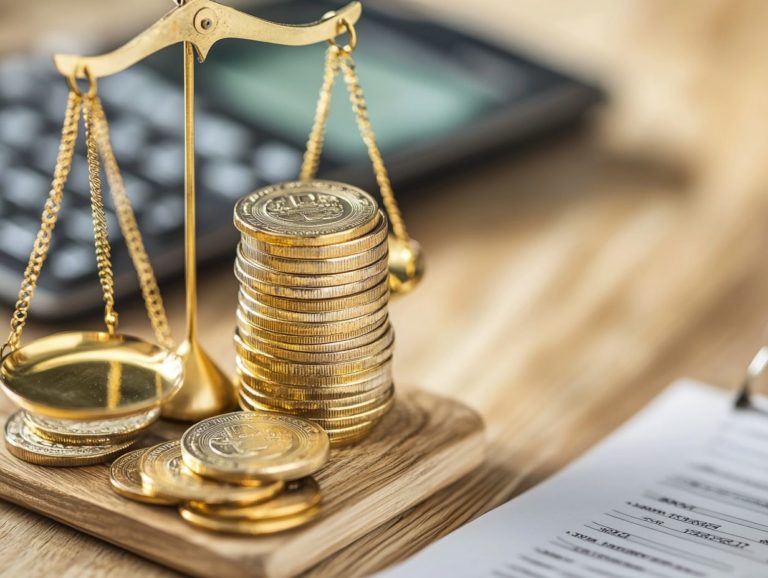How to Liquidate Precious Metals?
Are you contemplating cashing in on your valuable precious metals? Understanding the different types can empower you in the liquidation process.
This article delves into the motivations behind why individuals choose to sell their metals, ranging from financial necessities to strategic investment choices.
You will uncover various liquidation methods, key considerations before making a sale, and valuable tips for ensuring a successful transaction. Immerse yourself in this knowledge to navigate the precious metals market with confidence and poise.
Contents
- Key Takeaways:
- Understanding Precious Metals
- Reasons for Liquidating Precious Metals
- Methods of Liquidating Precious Metals
- Factors to Consider Before Selling
- Tips for a Successful Liquidation
- Frequently Asked Questions
- How do I determine the value of my precious metals?
- What is the best way to sell my precious metals?
- Are there any fees or commissions involved in liquidating precious metals?
- Can I sell my precious metals in any form?
- What are some red flags to watch out for when selling precious metals?
- Is there a best time to sell my precious metals?
Key Takeaways:
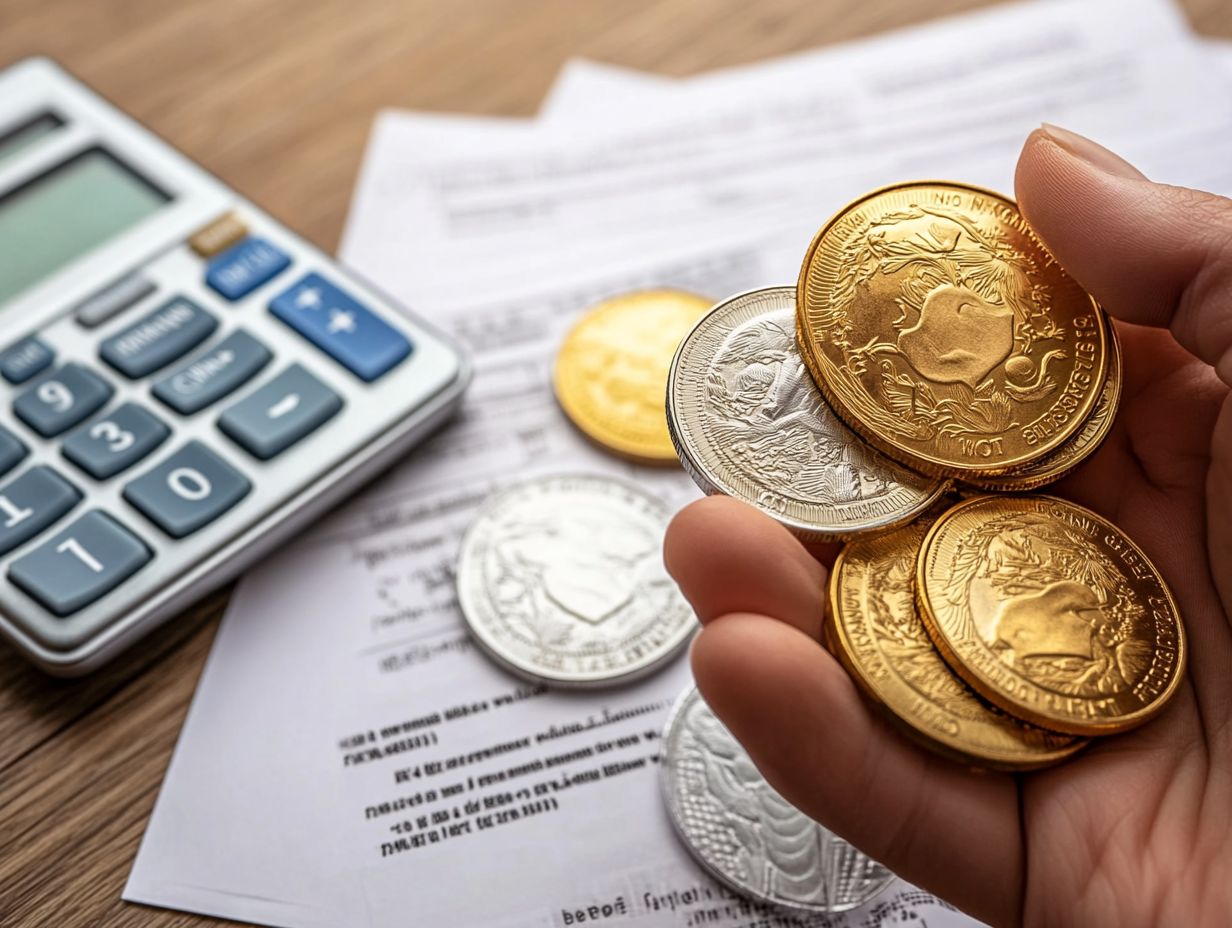
- Precious metals can be liquidated for financial need or as part of an investment strategy.
- Selling to a dealer or refiner and using online auctions and marketplaces are common methods of liquidating precious metals.
- Before selling, consider market conditions and assess the value of your metals. Proper preparation and negotiation can lead to a successful liquidation.
Understanding Precious Metals
Understanding precious metals is essential for you as an investor aiming to bolster your financial security and diversify your retirement portfolio. Gold, silver, platinum, and palladium stand out as some of the most sought-after precious metals, frequently integrated into various investment strategies due to their intrinsic value and ability to protect against market ups and downs.
Incorporating these other types of investments into your IRA can serve as a protective measure during economic downturns. Investing in precious metals can be a smart choice for those looking to benefit from rising demand and changes in global market prices.
Types of Precious Metals
The primary types of precious metals you should consider are gold, silver, platinum, and palladium, each presenting unique investment opportunities and value propositions.
Gold has long been celebrated for its remarkable ability to retain value over centuries, serving primarily as a robust hedge against inflation and currency fluctuations.
Silver s dual identity as both a precious metal and an essential industrial component fuels its demand, particularly in booming sectors like electronics and solar energy.
Platinum stands out for its rarity and durability, making it a coveted choice for luxury jewelry. Meanwhile, palladium takes center stage in the automotive industry due to its crucial role in reducing vehicle emissions, aligning perfectly with the industry’s pivot toward sustainability.
As you seek to balance your investment portfolio, the distinct characteristics and shifting market perceptions of these metals present compelling opportunities for both wealth preservation and growth. It’s also important to understand how to store precious metals effectively.
Reasons for Liquidating Precious Metals
Liquidating precious metals can be a strategic move influenced by a range of factors, such as your financial needs and investment strategies. You may need to act quickly to sell your holdings in gold, silver, or other precious metals due to market fluctuations, the urgent need for cash, or the desire to reallocate your funds into more promising investment avenues.
Grasping the timing and motivations behind this liquidation can profoundly affect your financial security.
Financial Need vs. Investment Strategy
Differentiating between financial need and investment strategy is crucial when you re considering liquidating precious metals. While immediate financial requirements may urge you to sell gold or other precious assets, it’s essential to strike a balance with a long-term investment strategy that safeguards the integrity of your retirement portfolio.
Many individuals encounter unexpected expenses that prompt a hasty sale to meet urgent demands. These impulsive decisions can jeopardize future financial security, particularly if market conditions aren t in your favor.
Conversely, a well-crafted investment strategy takes into account market fluctuations, historical performance, and your personal financial goals, enabling you to potentially achieve greater rewards over time.
Thus, weighing the urgency of your current financial needs against the advantages of holding onto these valuable assets can profoundly impact both your immediate situation and your future wealth accumulation.
Understanding the liquidation process is vital to making informed decisions. Explore your options today!
Methods of Liquidating Precious Metals
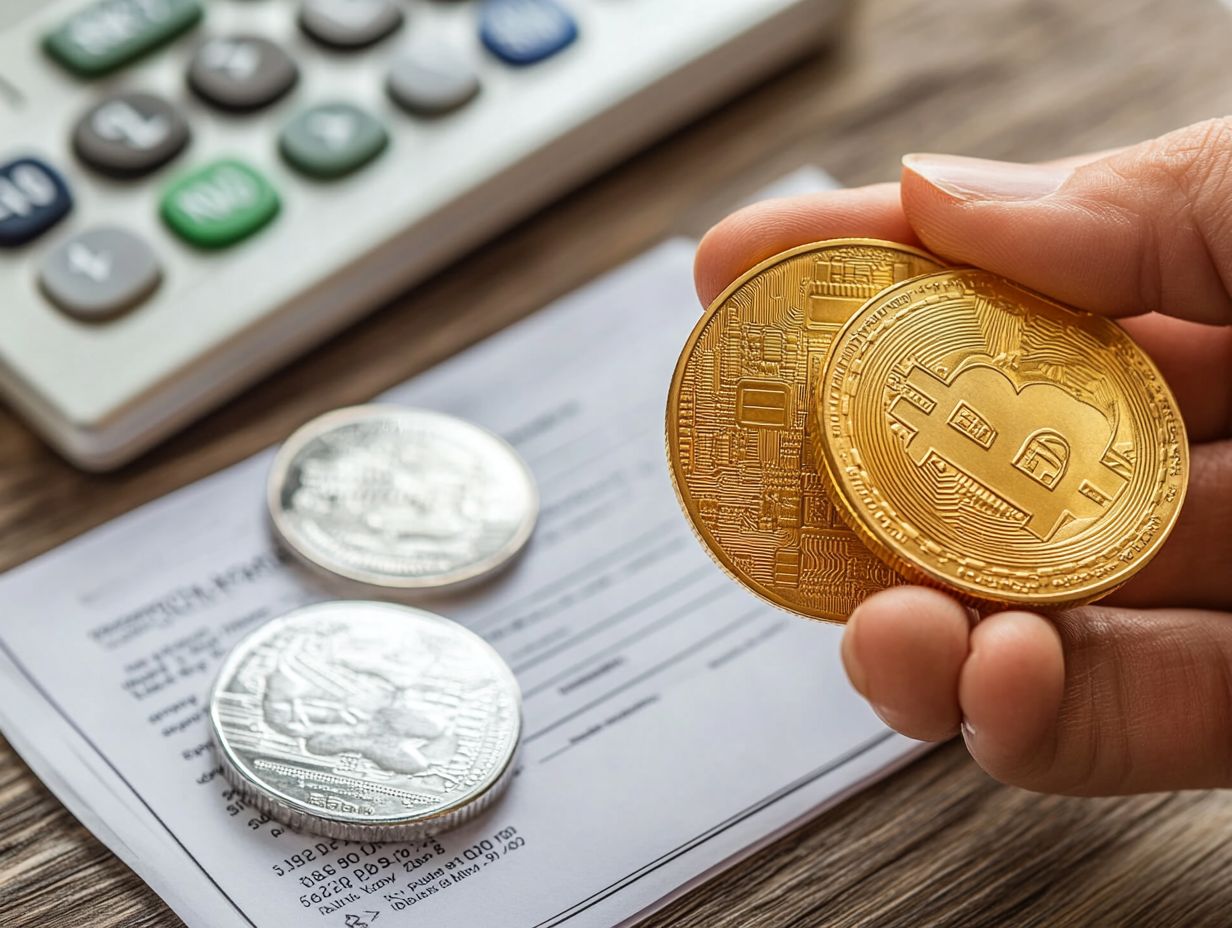
You have several effective methods at your disposal for liquidating precious metals, such as selling to a dealer or refiner, and utilizing online auctions and marketplaces.
Each method presents unique advantages. For example, working with a local dealer offers immediate cash, while online platforms may provide the potential for higher bids.
By understanding these options, you can make informed decisions about your precious metal assets and optimize your returns.
Selling to a Dealer or Refiner
Selling to a dealer or refiner is one of the simplest and most effective ways to liquidate your precious metals. This method provides you with immediate cash for your assets.
Dealers usually offer a quote based on the current price of metals in the market, while refiners may provide appraisal services to determine the true value of your gold, silver, or other bullion (precious metals in bulk form).
To maximize your returns, identify reputable dealers. You can achieve this by conducting thorough online research, checking reviews, and seeking recommendations from trusted sources. Additionally, understanding the top precious metals for investment can further enhance your decision-making process.
When you approach a dealer or refiner, be ready for the evaluation process. During this process, the purity and weight of your metals will be assessed. Pricing can fluctuate based on current demand and market conditions. Therefore, having a good understanding of the best practices for precious metals investment enhances your selling experience.
Getting a professional appraisal before selling helps you receive a fair offer, highlighting the importance of understanding the intrinsic value of your precious metals.
Online Auctions and Marketplaces
Online auctions and marketplaces have become premier platforms for selling precious metals. They offer you access to a wider audience and the potential for higher returns.
By selecting platforms that specialize in coins and bullion, you can set competitive prices that attract bids from eager buyers, significantly improving your chances of making a profitable sale.
These digital venues streamline your selling process and provide invaluable resources, including market trends and pricing information. By leveraging these insights, you can decide the best timing for listing your items.
Crafting effective product descriptions and including clear, appealing images can dramatically increase buyer interest.
Successful sellers prioritize exceptional customer service. Promptly addressing inquiries and providing transparent information about their products is key. Navigating these marketplaces with a strategic mindset can pave the way for successful transactions, maximizing your profits while ensuring buyer satisfaction in the ever-evolving landscape of precious metal sales. Additionally, considering the best vaults for storing precious metals can further protect your investments.
Factors to Consider Before Selling
Before selling precious metals, consider several crucial factors. Think about market conditions, timing, and the best ways to assess the value of your assets.
Understanding the current price of metals in the market and the overall demand for gold, silver, and other metals is essential for your decision-making process. This knowledge can lead to a more profitable liquidation.
Timing and Market Conditions
Timing and market conditions are crucial when deciding to sell precious metals. Demand fluctuations and economic stability can significantly impact prices.
To make the most informed decision, stay attuned to market trends. This awareness allows you to determine the optimal moment to liquidate your assets for maximum financial security.
Key indicators, like interest rates, inflation reports, and geopolitical events, play a role in shaping buyer sentiment and the overall market atmosphere. You might notice specific seasonal trends as well; for example, demand for gold and silver often increases toward the end of the year due to holiday shopping and investment behaviors.
By recognizing these patterns, you enable yourself to make informed choices, enriching your strategic approach as you navigate the intricate landscape of precious metals trading.
Start exploring your options today and maximize your returns!
Assessing the Value of Your Metals
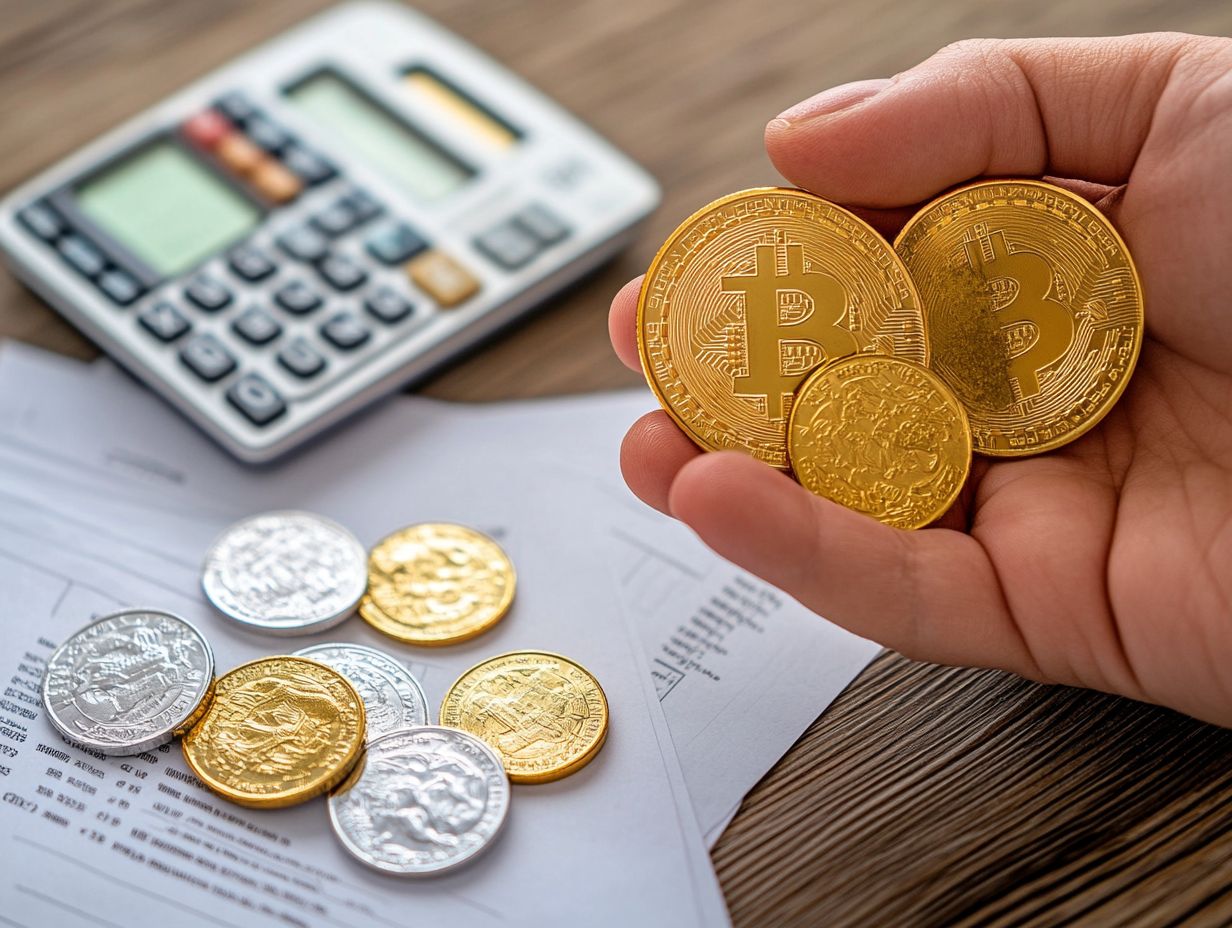
Assessing the value of your precious metals is crucial before selling them. This often requires a professional appraisal or a glance at current spot prices.
Understanding the worth of your gold, coins, and bullion ensures you receive a fair market price. The appraisal process involves evaluating the purity, weight, and overall condition of the metals, all of which can significantly impact their market price. For those interested in investing, learning how to trade precious metals is essential.
Spot prices, which are the current prices at which metals are bought or sold, fluctuate based on market demand and global economic factors. They serve as a vital benchmark for determining the current value of materials like silver or platinum.
By monitoring these prices, you can stay alert and watch those prices! They can make a huge difference in what you earn.
Whether you’re collaborating with a jeweler, dealing with a dealer, or considering auctioning your items, being knowledgeable about top storage solutions for precious metals increases your chances of achieving a satisfactory sale.
Tips for a Successful Liquidation
Achieving a successful liquidation of precious metals demands meticulous preparation and strategic negotiation. Organizing your assets and comprehending their market value significantly enhances your chances of securing a favorable outcome.
Your knowledge and confidence play crucial roles in the selling process, ultimately bolstering your financial security.
Preparing Your Metals for Sale
Getting your precious metals for sale ready involves essential steps that can elevate both the presentation and the price of your assets. Start by organizing your coins and bullion cleanliness and documentation are key.
First, consider categorizing your items by type—gold bars, silver coins, or platinum bullion. This method simplifies the valuation process and helps potential buyers grasp the overall worth of your collection. For those looking to invest, it’s also important to learn how to understand precious metal trends over time.
It s crucial to maintain a record of any appraisals or certifications from reputable grading services. Remember, the condition of your items directly affects their market value, so use gentle cleaning techniques to preserve their integrity without risking damage.
By staying organized and informed, you can significantly enhance your selling experience and maximize your returns.
Negotiating and Finalizing the Sale
Negotiating and finalizing the sale of your precious metals is a crucial stage. Grasping market value and setting clear objectives can significantly impact your results.
Whether you’re selling to a dealer or via an online marketplace, employing effective negotiation tactics can secure you a better price and enhance your financial security.
Understanding current market trends enables you to be more assertive, allowing you to position yourself advantageously during discussions.
Arriving prepared with recent appraisals or reports that showcase the true worth of your items can elevate your confidence in negotiations.
Exercising patience and being ready to walk away from low offers not only gives you leverage but can also lead to more favorable terms.
Ultimately, maintaining clarity throughout the transaction including any fees or commissions involved streamlines the process and builds trust with potential buyers, ensuring a smooth and rewarding sale.
Frequently Asked Questions
How do I determine the value of my precious metals?
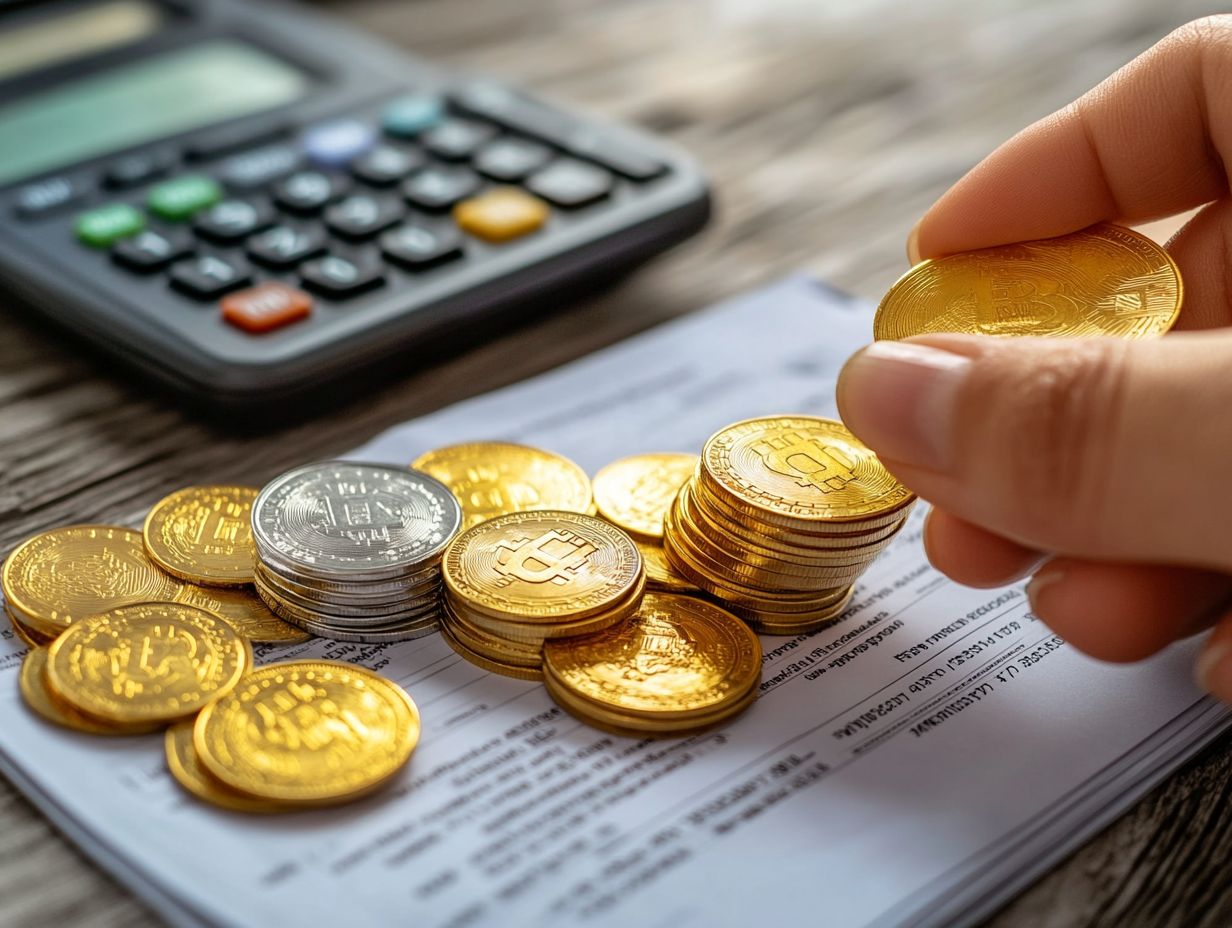
The value of precious metals is determined by factors such as weight, purity, and current market rates. You can consult with a reputable dealer or use online resources to get an accurate valuation.
What is the best way to sell my precious metals?
There are several options for selling precious metals. These include selling to a dealer, using online marketplaces, or participating in auctions. Research and compare these options to find the best one for your needs.
Are there any fees or commissions involved in liquidating precious metals?
It depends on the method you choose to sell your precious metals. Some dealers may charge a small fee or commission, while online sales may involve transaction fees. Before you sell, don t forget to account for those fees every dollar counts!
Can I sell my precious metals in any form?
Most dealers only accept precious metals as bullion, coins, or bars. Some may accept jewelry or scrap metals, but these often come with additional checks and may not yield the best prices.
What are some red flags to watch out for when selling precious metals?
Beware of offers that sound too good to be true; they could be scams. Research the buyer’s reputation and read reviews. Trust your instincts don’t hesitate to ask questions or walk away if something feels off.
Is there a best time to sell my precious metals?
Timing can be key! Keep an eye on market trends and consult a respected dealer. Experts often recommend selling during economic uncertainty or when demand for precious metals spikes.










